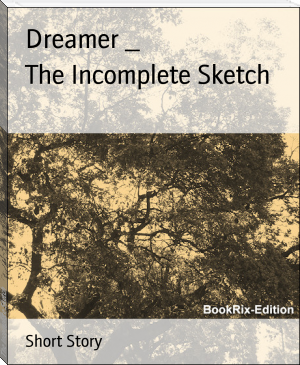Thoughts Of Marcus Aurelius Antoninus - Marcus Aurelius Antoninus (novels to read for beginners .TXT) 📗

- Author: Marcus Aurelius Antoninus
Book online «Thoughts Of Marcus Aurelius Antoninus - Marcus Aurelius Antoninus (novels to read for beginners .TXT) 📗». Author Marcus Aurelius Antoninus
Before, Keeping To This Main Point, How The Mind, While Participating In
Such Movements As Go On In The Poor Flesh, Shall Be Free From
Perturbations And Maintain Its Proper Good. Nor Did I, He Says, Give The
Physicians An Opportunity Of Putting On Solemn Looks, As If They Were
Doing Something Great, But My Life Went On Well And Happily. Do, Then,
The Same That He Did Both In Sickness, If Thou Art Sick, And In Any
Other Circumstances; For Never To Desert Philosophy In Any Events That
May Befall Us, Nor To Hold Trifling Talks Either With An Ignorant Man Or
With One Unacquainted With Nature, Is A Principle Of All Schools Of
Philosophy; But To Be Intent Only On That Which Thou Art Now Doing And
On The Instrument By Which Thou Doest It.
42. When Thou Art Offended With Any Man's Shameless Conduct, Immediately
Ask Thyself, Is It Possible, Then, That Shameless Men Should Not Be In
The World? It Is Not Possible. Do Not, Then, Require What Is Impossible.
For This Man Also Is One Of Those Shameless Men Who Must Of Necessity Be
In The World. Let The Same Considerations Be Present To Thy Mind In The
Case Of The Knave, And The Faithless Man, And Of Every Man Who Does
Wrong In Any Way. For At The Same Time That Thou Dost Remind Thyself
That It Is Impossible That Such Kind Of Men Should Not Exist, Thou Wilt
Become More Kindly Disposed Towards Every One Individually. It Is Useful
To Perceive This, Too, Immediately When The Occasion Arises, What Virtue
Nature Has Given To Man To Oppose To Every Wrongful Act. For She Has
Given To Man, As An Antidote Against The Stupid Man, Mildness, And
Against Another Kind Of Man Some Other Power. And In All Cases It Is
Possible For Thee To Correct By Teaching The Man Who Is Gone Astray; For
Every Man Who Errs Misses His Object And Is Gone Astray. Besides,
Wherein Hast Thou Been Injured? For Thou Wilt Find That No One Among
Those Against Whom Thou Art Irritated Has Done Anything By Which Thy
Mind Could Be Made Worse; But That Which Is Evil To Thee And Harmful Has
Its Foundation Only In The Mind. And What Harm Is Done Or What Is There
Strange, If The Man Who Has Not Been Instructed Does The Acts Of An
Uninstructed Man? Consider Whether Thou Shouldst Not Rather Blame
Thyself, Because Thou Didst Not Expect Such A Man To Err In Such A Way.
For Thou Hadst Means Given Thee By Thy Reason To Suppose That It Was
Likely That He Would Commit This Error, And Yet Thou Hast Forgotten And
Art Amazed That He Has Erred. But Most Of All When Thou Blamest A Man As
Faithless Or Ungrateful, Turn To Thyself. For The Fault Is Manifestly
Thy Own, Whether Thou Didst Trust That A Man Who Had Such A Disposition
Would Keep His Promise, Or When Conferring Thy Kindness Thou Didst Not
Confer It Absolutely, Nor Yet In Such Way As To Have Received From Thy
Very Act All The Profit. For What More Dost Thou Want When Thou Hast
Done A Man A Service? Art Thou Not Content That Thou Hast Done Something
Conformable To Thy Nature, And Dost Thou Seek To Be Paid For It? Just As
If The Eye Demanded A Recompense For Seeing, Or The Feet For Walking.
For As These Members Are Formed For A Particular Purpose, And By Working
According To Their Several Constitutions Obtain What Is Their Own;[A] So
Also As Man Is Formed By Nature To Acts Of Benevolence, When He Has Done
Anything Benevolent Or In Any Other Way Conducive To The Common
Interest, He Has Acted Conformably To His Constitution, And He Gets What
Is His Own.
[A] [Greek: Apechei To Idion]. This Sense Of [Greek: Apechein]
Story 3 (The Thoughts Of Marcus Aurelius Antonius) Pg 99Occurs In Xi. 1, And Iv. 49; Also In St. Matthew, Vi. 2,
[Greek: Apechousi Ton Misthon], And In Epictetus.
X.
Wilt Thou, Then, My Soul, Never Be Good And Simple And One And Naked,
More Manifest Than The Body Which Surrounds Thee? Wilt Thou Never Enjoy
An Affectionate And Contented Disposition? Wilt Thou Never Be Full And
Without A Want Of Any Kind, Longing For Nothing More, Nor Desiring
Anything, Either Animate Or Inanimate, For The Enjoyment Of Pleasures?
Nor Yet Desiring Time Wherein Thou Shalt Have Longer Enjoyment, Or
Place, Or Pleasant Climate, Or Society Of Men With Whom Thou Mayst Live
In Harmony? But Wilt Thou Be Satisfied With Thy Present Condition, And
Pleased With All That Is About Thee, And Wilt Thou Convince Thyself That
Thou Hast Everything, And That It Comes From The Gods, That Everything
Is Well For Thee, And Will Be Well Whatever Shall Please Them, And
Whatever They Shall Give For The Conservation Of The Perfect Living
Being,[A] The Good And Just And Beautiful, Which Generates And Holds
Together All Things, And Contains And Embraces All Things Which Are
Dissolved For The Production Of Other Like Things? Wilt Thou Never Be
Such That Thou Shalt So Dwell In Community With Gods And Men As Neither
To Find Fault With Them At All, Nor To Be Condemned By Them?
[A] That Is, God (Iv. 40), As He Is Defined By Zeno. But The
Confusion Between Gods And God Is Strange.
2. Observe What Thy Nature Requires, So Far As Thou Art Governed By
Nature Only: Then Do It And Accept It, If Thy Nature, So Far As Thou Art
A Living Being, Shall Not Be Made Worse By It. And Next Thou Must
Observe What Thy Nature Requires So Far As Thou Art A Living Being. And
All This Thou Mayst Allow Thyself, If Thy Nature, So Far As Thou Art A
Rational Animal, Shall Not Be Made Worse By It. But The Rational Animal
Is Consequently Also A Political [Social] Animal. Use These Rules, Then,
And Trouble Thyself About Nothing Else.
3. Everything Which Happens Either Happens In Such Wise As Thou Art
Formed By Nature To Bear It, Or As Thou Art Not Formed By Nature To Bear
It. If, Then, It Happens To Thee In Such Way As Thou Art Formed By
Nature To Bear It, Do Not Complain, But Bear It As Thou Art Formed By
Nature To Bear It. But If It Happens In Such Wise As Thou Art Not Formed
By Nature To Bear It, Do Not Complain, For It Will Perish After It Has
Consumed Thee. Remember, However, That Thou Art Formed By Nature To Bear
Everything, With Respect To Which It Depends On Thy Own Opinion To Make
It Endurable And Tolerable, By Thinking That It Is Either Thy Interest
Or Thy Duty To Do This.
4. If A Man Is Mistaken, Instruct Him Kindly And Show Him His Error. But
If Thou Art Not Able, Blame Thyself, Or Blame Not Even Thyself.
Story 3 (The Thoughts Of Marcus Aurelius Antonius) Pg 1005. Whatever May Happen To Thee, It Was Prepared For Thee From All
Eternity; And The Implication Of Causes Was From Eternity Spinning The
Thread Of Thy Being, And Of That Which Is Incident To It (Iii. 11; Iv.
26).
6. Whether The Universe Is [A Concourse Of] Atoms, Or Nature [Is A
System], Let This First Be Established, That I Am A Part Of The Whole
Which Is Governed By Nature; Next, I Am In A Manner Intimately Related
To The Parts Which Are Of The Same Kind With Myself. For Remembering
This, Inasmuch As I Am A Part, I Shall Be Discontented With None Of The
Things Which Are Assigned To Me Out Of The Whole; For Nothing Is
Injurious To The Part If It Is For The Advantage Of The Whole. For The
Whole Contains Nothing Which Is Not For Its Advantage; And All Natures
Indeed Have This Common Principle, But The Nature Of The Universe Has
This Principle Besides, That It Cannot Be Compelled Even By Any External
Cause To Generate Anything Harmful To Itself. By Remembering, Then, That
I Am A Part Of Such A Whole, I Shall Be Content With Everything That
Happens. And Inasmuch As I Am In A Manner Intimately Related To The
Parts Which Are Of The Same Kind With Myself, I Shall Do Nothing
Unsocial, But I Shall Rather Direct Myself To The Things Which Are Of
The Same Kind With Myself, And I Shall Turn All My Efforts To The Common
Interest, And Divert Them From The Contrary. Now, If These Things Are
Done So, Life Must Flow On Happily, Just As Thou Mayst Observe That The
Life Of A Citizen Is Happy, Who Continues A Course Of Action Which Is
Advantageous To His Fellow-Citizens, And Is Content With Whatever The
State May Assign To Him.
7. The Parts Of The Whole, Everything, I Mean, Which Is Naturally
Comprehended In The Universe, Must Of Necessity Perish; But Let This Be
Understood In This Sense, That They Must Undergo Change. But If This Is
Naturally Both An Evil And A Necessity For The Parts, The Whole Would
Not Continue To Exist In A Good Condition, The Parts Being Subject To
Change And Constituted So As To Perish In Various Ways. For Whether Did
Nature Herself Design To Do Evil To The Things Which Are Parts Of
Herself, And To Make Them Subject To Evil And Of Necessity Fall Into
Evil, Or Have Such Results Happened Without Her Knowing It? Both These
Suppositions, Indeed, Are Incredible. But If A Man Should Even Drop The
Term Nature [As An Efficient Power], And Should Speak Of These Things As
Natural, Even Then It Would Be Ridiculous To Affirm At The Same Time
That The Parts Of The Whole Are In Their Nature Subject To Change, And
At The Same Time To Be Surprised Or Vexed As If Something Were Happening
Contrary To Nature, Particularly As The Dissolution Of Things Is Into
Those Things Of Which Each Thing Is Composed. For There Is Either A
Dispersion Of The Elements Out Of Which Everything Has Been Compounded,
Or A Change From The Solid To The Earthy And From The Airy To The
Aerial, So That These Parts Are Taken Back Into The Universal Reason,
Whether This At Certain Periods Is Consumed By Fire Or Renewed By
Eternal Changes. And Do Not Imagine That The Solid And The Airy Part
Belong To Thee From The Time Of Generation. For All This Received Its
Accretion Only Yesterday And The Day Before, As One May Say, From The
Food And The Air Which Is Inspired. This, Then, Which Has Received [The
Accretion], Changes, Not That Which Thy Mother Brought Forth. But
Suppose That This [Which Thy Mother Brought Forth] Implicates Thee Very
Much With That Other Part,





Comments (0)